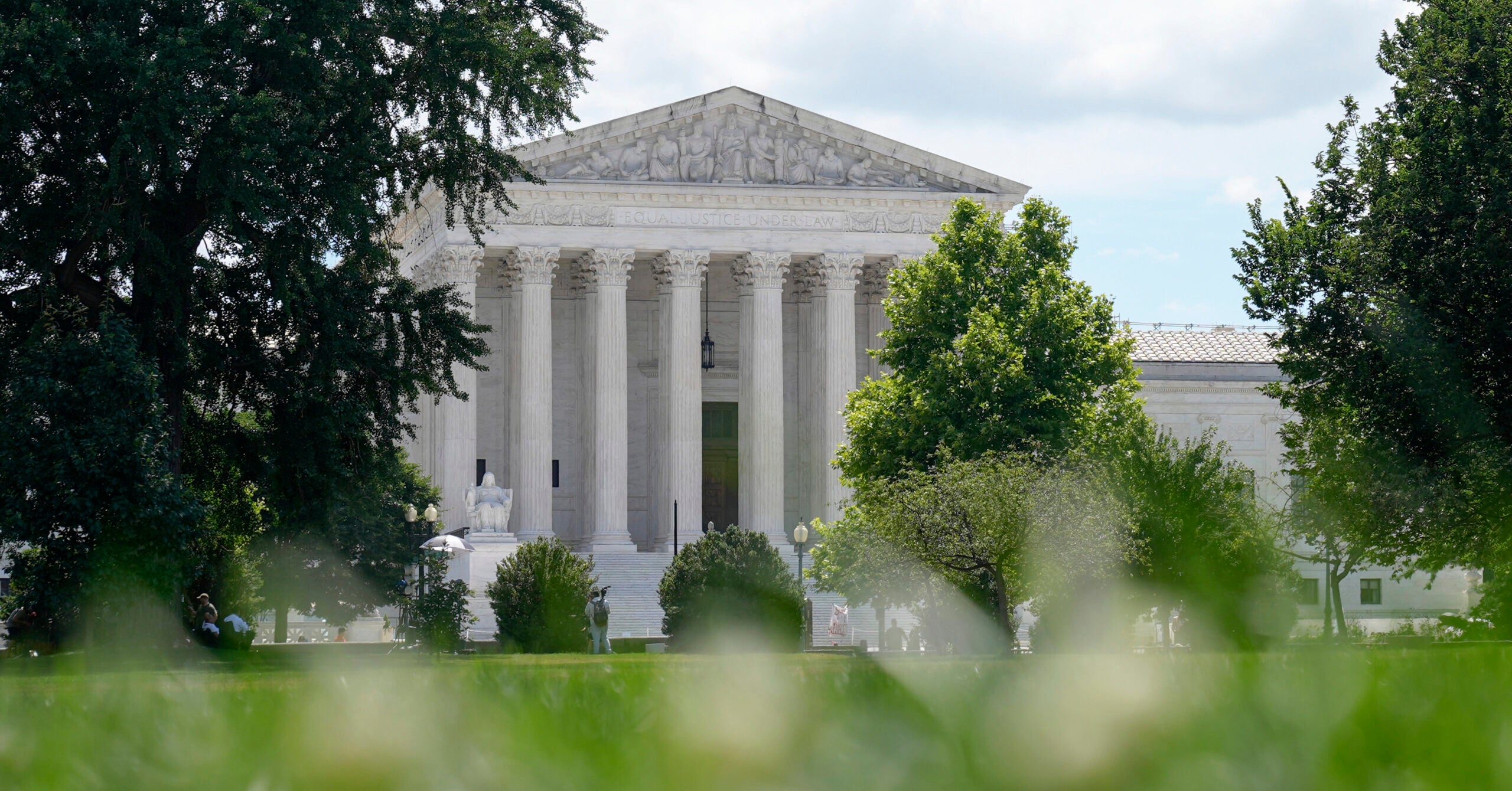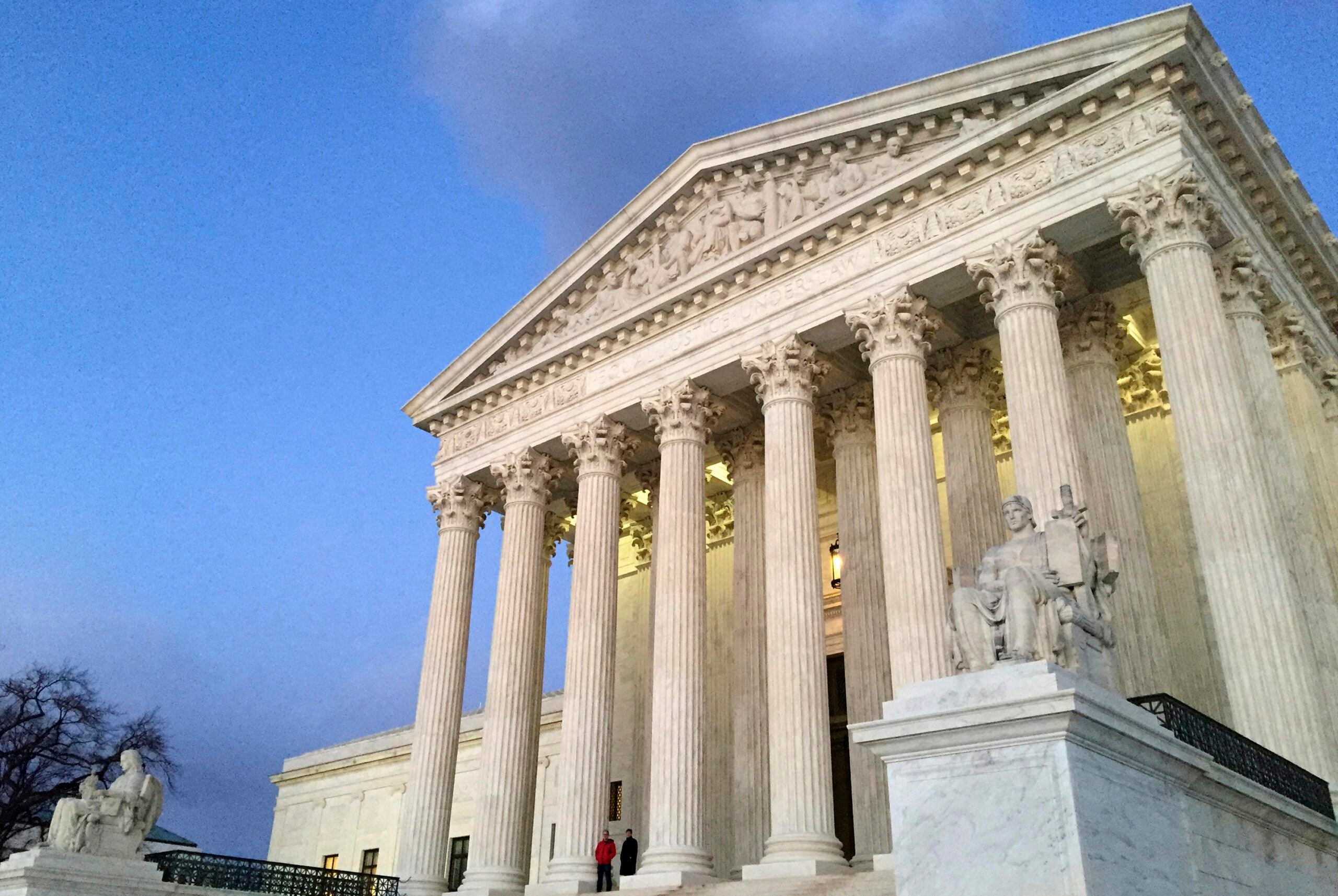The U.S. Supreme Court has unanimously ruled that the Catholic Charities Bureau in Superior doesn’t have to pay unemployment tax to Wisconsin.
The charitable arm of the Catholic Diocese of Superior had argued it was wrongfully denied a religious exemption from paying state unemployment tax, prompting a legal challenge that went all the way to the nation’s highest court.
The Wisconsin Supreme Court’s liberal majority previously ruled 4-3 in favor of the state’s workforce agency and labor review commission over the denial of the exemption. The majority decision stated that while the group’s mission is to carry out Catholic teachings, its activities are “primarily charitable and secular.”
News with a little more humanity
WPR’s “Wisconsin Today” newsletter keeps you connected to the state you love without feeling overwhelmed. No paywall. No agenda. No corporate filter.
Justices ruled 9-0 that the state violated the First Amendment’s guarantee of religious freedom by requiring the group to pay unemployment tax while exempting other faith groups. The Diocese of Superior’s Bishop James Powers said in a statement that the heart of Catholic Charities’ ministry is caring for the poor without condition or exception.
“We’re grateful the Court unanimously recognized that improving the human condition by serving the poor is part of our religious exercise and has allowed us to continue serving those in need throughout our diocese and beyond,” Powers said.
In the court’s decision, Justice Sonia Sotomayor wrote that the First Amendment requires the government to be neutral between religions.
“There may be hard calls to make in policing that rule, but this is not one,” Sotomayor wrote. “When the government distinguishes among religions based on theological differences in their provision of services, it imposes a denominational preference that must satisfy the highest level of judicial scrutiny.”
The court found decisions about whether to express religious beliefs through worship or religious teachings when performing charitable work are theological choices driven by different religious doctrines. Justice Clarence Thomas said the First Amendment’s guarantee of church autonomy gives religious groups the right to conduct internal affairs without state interference.
Attorney Colten Stanberry, with the Becket Fund for Religious Liberty, represented Catholic Charities and called the decision a win for religious liberty.
“This is an instance where you see the Supreme Court in a religious liberty case saying, ‘Hey, you don’t get to discriminate against people based on what they believe,’” Stanberry said. “I just think that’s really good for our country, given the fact that we’ve got a lot of religious minorities that believe different things.”
Wisconsin and more than 40 other states exempt religious organizations from unemployment compensation taxes. Even so, Wisconsin argued that Catholic Charities had been paying the unemployment tax for more than 50 years.
Groups like the Freedom From Religion Foundation said the ruling could radically expand exemptions for hospitals or health systems with religious ties, which could end up leaving 700,000 to more than 1 million workers without unemployment coverage.
Staff attorney Sammi Lawrence with the Freedom From Religion Foundation condemned the decision.
“The ruling, even though it’s as applied to the situation, could have really devastating consequences for workers nationwide and further provide government preferences and favoritism for religious groups and organizations,” Lawrence said.
Rachel Laser, president and CEO of Americans United for Separation of Church and State, said in a statement that the case represents a dangerous trend from legal outfits claiming religious motives to sidestep worker protections.
“If these religious extremists succeed, the mere invocation of religious beliefs will erase important social safety nets and civil rights protections for workers,” Laser said.
Catholic Charities and its entities operate more than 60 programs that assist people who are aging, living with disabilities, living in poverty or in need of disaster relief.
In 2015, a Douglas County judge exempted one of the group’s subsidiaries that helps people living with developmental disabilities from having to pay into the state plan. Catholic Charities argued that it, along with other subsidiaries, should also receive an exemption, and a judge agreed in 2020.
Two years later, a state appeals court overturned the ruling and sided with the Wisconsin Department of Workforce Development and the state’s Labor and Industry Review Commission. While the diocese operates the Catholic Charities Bureau, the commission argued the organization’s activities or services weren’t expressly religious in nature.
The Wisconsin Supreme Court upheld that ruling and said neither the organization nor its subsidiaries attempted to “imbue program participants with the Catholic faith” or provide any religious materials to employees and participants.
Editor’s note: WPR initially posted a version of this story from The Associated Press. We have updated this article with original reporting.
Wisconsin Public Radio, © Copyright 2026, Board of Regents of the University of Wisconsin System and Wisconsin Educational Communications Board.




